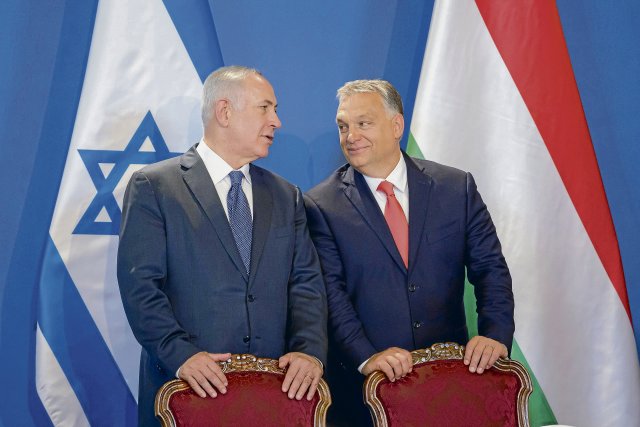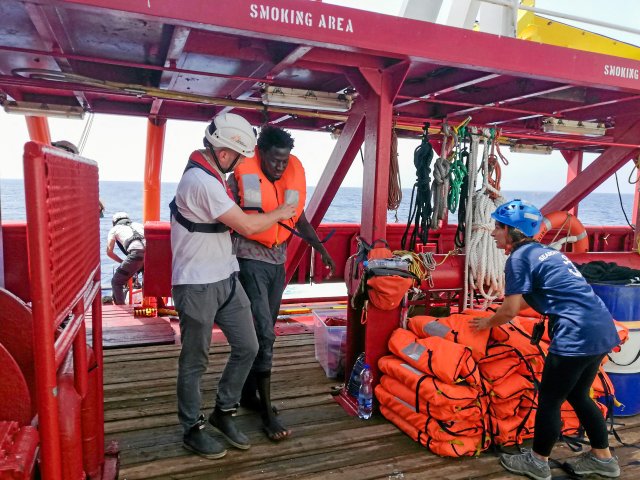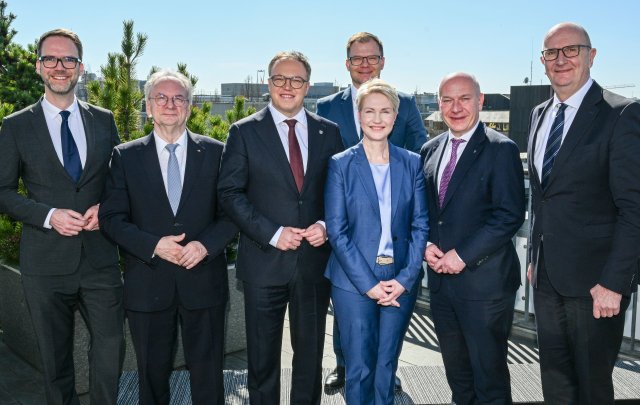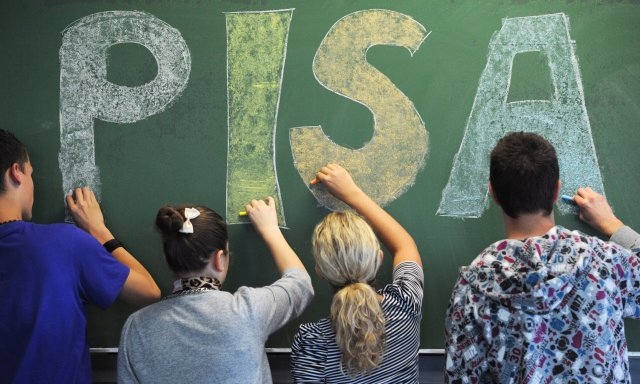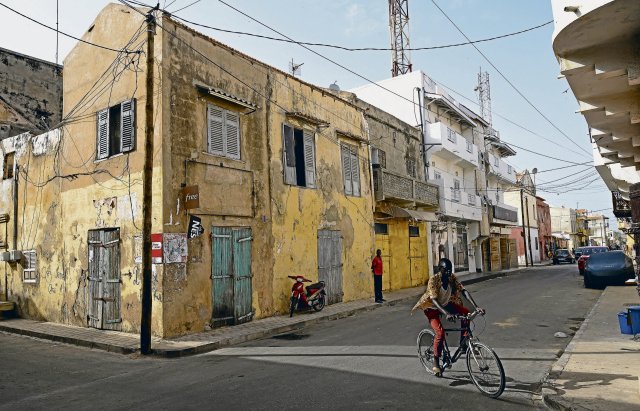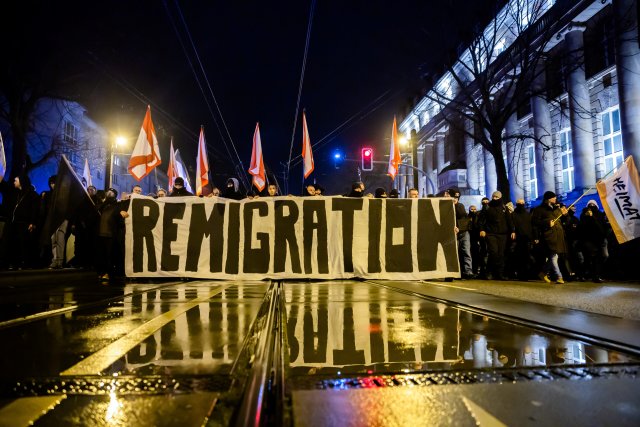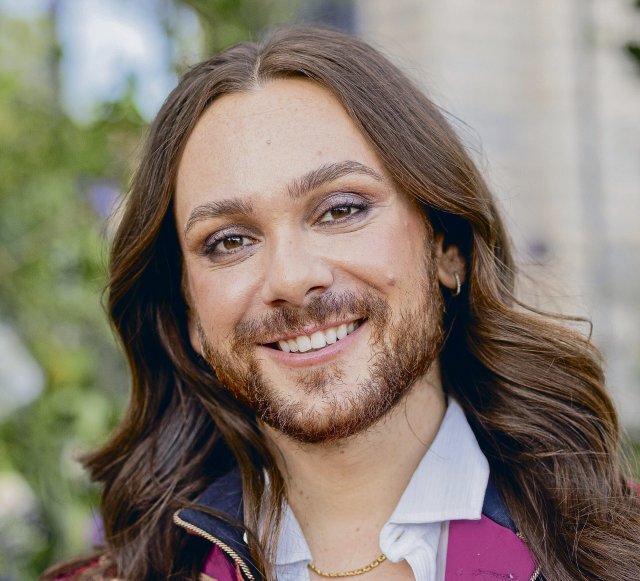- Politik
- EU elections
What does »EU« mean to you?
Our online series before the European Parliament elections

Soon, European Parliament elections will take place and so many different topics are discussed under the term »EU«. Climate change, right-wing populism, intransparency, EU institutions, LGBTI* rights, the Erasmus scholarship. But what do young people associate with the EU? We have asked young people from all over Europe: What does EU mean to you? What do you associate with it?
Their answers varied enormously. Until the European Parliament elections on May 26, you will read each day more statements of people here.
Isma, 27, lives in Brussels, from France
Growing up European
I grew up in Strasbourg, so I grew up understanding the presence and the idea of the European Union and its European identity. I remember hearing people talking much more about being part of the European Union rather than about being French. In Strasbourg, there are all nationalities and we are used having many cultural activities around the EU. So from early on, I lived in this multicultural dimension because I was in a European city that creates links between cultures, from Europe and from other continents. And this is something important to me, as it made me understand the chance of being a citizen of an EU member state, being able to travel, being able to exchange with others.
Since I was very young, every time I heard someone speak of the EU, I associated it with gathering people together and bringing people closer to each other. I understood it vividly as a way to make sure that people exchange thoughts and discuss.
Today, I live in Brussels because I wanted to continue to work in a multicultural world, European but also international. I know that the European Union isn't flawless and can be strengthened. There is nevertheless a beautiful research to work more and more together.
Stefan, 20, animal rights activist, from Bulgaria
Chance to faster engage for animals
As someone for whom the issue of animal rights is extremely important, the European Union is an amazing opportunity to do more good for the animals. Achieving that separately, country by country, would otherwise take a lifetime.
A good example is the EU-wide ban on animal testing for cosmetics in 2013, and the End-The-Cage-Age European Citizens’ Initiative in which already almost a million EU citizens have participated since September 2018.
An open and united Europe has created an amazing environment for close-knit collaboration with other European animal-rights organizations and groups, allowing us all to grow immensely, learning from one another. This is, of course, also the case for other movements who are for positive social change, like environmental groups, human-rights defenders and others. Changing the world for the better is now easier than ever. And this is how it should be.
However, the EU itself can only be a means to making the world a better place. Determined, socially engaged people, ready to sacrifice time and energy for what they believe in are still very much needed. And they are still a lot fewer than the scale of problems that need to be solved.
Céline, 30, Brussels, photographer
Improving things together
Europe is for me at first a continent, a geographic space in which I had the chance to be born into. It is the whole of countries, united around the same idea of democracy. And which tries to support, to regulate and to normalise the multitude of national laws. So that every citizen recognizes him- or herself in this European ideal.
Europe is a concentrate of different nationalities, cultures and histories which unite to make our civilisation better and more social. It also acts as a railing that prevents certain countries to go too far. Europe is as well a big freedom offered to everyone to travel, to share, to express oneself. A continent where art can express itself and develop.
This is obviously an ideal vision of Europe. It is my vision… While knowing very well that it is still a long way before every European can feel equal with the others. Europe cannot work anymore without listening to all its different countries it is composed of. But it has the power to change things, to improve them, if we are there to defend it. Europe can be an ally by facing the big problems of our society like the climate, poverty, immigrations and social injustices.
Miranda, 28, lives in Frankfurt, from Albania
Inclusion and exclusion at the same time
Three years ago I was asked in the streets of Berlin by a group of high school students if I could participate in their project about the EU. They asked if I was European and I said yes. When then they later understood where I was from they had disappointed faces and reneged their offer. In that moment, I hoped they would have learned a big lesson about the EU, but probably they didn’t. I am European but I am not an EU citizen. At first glance, I am a welcomed guest who can contribute to the EU but on second notice there are constant walls that rise up around me and I cannot transverse them.
This year it will be 10 years that I have been living in Germany. I research at the university on the role of the EU beyond its borders and I teach courses to students about the intricacies of the EU as a global actor but I am not allowed to vote in this or any other local or national elections. If I had decided to pursue a high-paying, probably not so interesting job instead of my precarious academic position at the university, I would have already gained the privileges of citizenship.
To me the EU is inclusion and exclusion at the same time. My most meaningful connections and encounters have only been possible because of living and moving around the EU. The geographical impossibilities of my life also mean that I am perpetually an insider and an outsider at the same time wherever I am.
While growing up, for as long as I can remember, I have always heard life will by better when we finally join the EU. I don’t know if this is true or if it will ever happen but to me the most avid Europeans live beyond its borders.
Athena, 25, lives in Germany, from Greece
Neoliberal hypocrisy
Of course it is cool being able to travel with an identity card Europe-wide. Except when one flees from a South European country like Greece because one does not have an alternative: with 500 Euros per month as a new employee in the private sector, one can only survive. That in the last years, salaries in South European countries have decreased by half is the golden rule of European neoliberalism. Banks and companies are richer through it, employees have become poorer, tired and depressive.
The humanist self-confidence of the EU is deceptive: In refugee camps in Idomeni in Northern Greece, pregnant women spend winter in tents, while huge lands in the EU area are given to corporate initiatives. It is hardly surprising that the radical right sits in the parliament in 21 member states. Neoliberalism creates miserable conditions for many employees and feeds the fear as well as the search for guilty ones who are easy to denounce, like refugees and poor countries. We urgently have to fight for another Europe. And Europe ist not an institution but a geographic space. We, the working and unemployed majority, should be able to decide about how living together is designed.
Lucas, 23, student, lives in France
An opportunity to create unity
I have always had a positive perception of the European Union. For me, the EU represents the possibility to create a cultural unity between different countries and people despite their differences. I am of course aware of the EU‘s political and economic dimension. But at first, I see it as a civic community that tries to bring closer the inhabitants of the individual countries, so that the misunderstandings and hostilities stop. However, not everything is perfect, I associate the EU also with the difficulty to find a consensus.
Although I can understand that some citizens have reservations about supporting the EU also after a certain loss of sovereignty, I see it differently. For me, the EU is a n improvable but necessary cooperation that already does a lot to make its citizens advance. Initiatives like the student exchange programme Erasmus in which I participated enable to create oneself a certain European vision as a student. And to understand that sometimes, borders really exist. I also always keep in mind that the EU is a chance. Especially regarding the hopes it awakens at many people at the periphery of this space, as borders are nevertheless for many a reality.
Michelle, 31 years old, works as a teacher and lives in Berlin
Identity and participation
Europe has also become an identity for me. I come from Cottbus, I am a Sorb, a minority community which mostly lives in Eastern Germany. My identity was for a long time something regional. But then, quickly, the European identity was added to that. Because I find the differences in the countries, the traditions, the languages fantastic. We have to perceive all this as wealth. We have to find it beautiful and we also have to like upcoming controversies, when we detect differences when we do not immediately understand each other, even if we may speak the same language. And we have to appreciate that humans are different and that maybe sometimes, also in the communication with each other, one needs a bit of patience. We have to listen, to first have a look.
This is why I am doing the job that I do because I definitely want to make it clear to young people that the world could look very different. And it will look very different if we do not make some efforts.
What I find problematic about the EU as it is now is that we celebrate the internal peace and to the outside, we erect barbed wires. Now that I work with refugee teenagers, it is a stark contrast between worlds that clash and how much we sometimes have to hug one another to console us. Among them are many great people who will make a contribution, especially a European contribution. Because they understand Europe in a completely different way than German teenagers even can grasp it. And they can also stand up to values very differently than German teenagers do. Because they really know how it can be different. And we are extremely lucky thanks to Europe to live in an incredibly peaceful bubble. We can travel, study, work and live Europe-wide. No one is surprised when someone says: »I have bought a summer cottage in Mallorca«. Well, you can do it, it might be a bit bourgeois, but okay.
Catalina, 36, lives in Italy, from Romania
Freedom through mobility
I am still in awe of backpackers who take gap years to travel ‘throughout Europe’, as they usually say. Or the enormous number of students who have studied elsewhere in Europe and the ease with which they talk about it. I, still inhabited by my memories and the angst of life in a Europe which required me to apply for visas, always think of the administrative aspects: is it really that easy to travel and study freely?
I am Romanian, and I’ve been able to travel without a visa since 2007. I still remember the English newspapers overtaken by febrile terror that ‘the Romanians will invade us’ and the indignation I used to feel that I had to queue separately when I travelled with a visa. Romania’s joining of the European Union marked the beginning of what I call ‘my proper life’. I was accepted as a home student at a UK university and it was at the moment I was granted a student loan that I realised what the EU meant for me: living without being harassed by the authorities. At the moment I am doing a PhD in Florence and I am still amazed by my ability to study in other countries.

I also would have never transcended the life my social location in my home town almost certainly had already determined for me: perhaps still employed at the garment factory I worked in between the ages of 18-20 because money was tight?
My EU story is full of optimism and opportunities granted and seized. Yet, in the same manner my current life would have been foreclosed had Romania not joined the EU, I wonder why the union still is only partially European.
Jolinde, 28 years old, lives in Brussels. As an employee of a trade union, she strives for better working conditions for workers and also advocates for a better world for everyone in her free time.
Neoliberal politics and social dumping
The problem with the European Union is that it pursues very neoliberal politics. It imposes this neoliberal way of thinking on its member states. As a member state, you do not have many possibilities to go against this. Europe is not democratic at all. The best example is Greece. The Greek people voted for Syriza, which wanted more social policies and also voted against austerity measures. The EU did not care and imposed their austerity measures on the Greek government and the people.
This neoliberal direction is also due to an immense group of lobbyists, multinationals and big corporations, who influence the European Parliament and the European Commission. They obviously implement what is best for big corporations. Also, social dumping is a big problem in Europe. For example in Belgium, we want to raise the minimum wage and have better working conditions for everyone. This is very difficult because corporations will just threaten to go to another European country where working conditions and wages are less good. Instead of having high standards in the whole EU, there is a lot of competition and it is possible to do social dumping.
I am not per se against the European Union, but I would want a more social Europe. One that is to the advantage of the working people. For that, we would need to make legislation at European level that protects people, that raises minimum wages and we would have to act against tax evasion. Also, we would have to introduce higher and equal taxes for corporations in all member states, so that the corporations cannot threaten them by saying they will go elsewhere.
Gaetan is 37 years old and lives in Berlin. The project manager hails from France.
Fairer taxation
Europe is a difficult topic for me because it is paradox: On one side, it is thanks to the European Union that I can live the life that I have. That means easy travelling between France and Germany, not having to change money, to be able to marry a German, to work in the neighbour country. But on the other hand, there is a real imbalance between those who are very rich and those who are very poor. Instead of bringing these two populations closer together, they are rather driven further away from each other.
I have the impression that we absolutely have to be supportive of Europe. But I am not for Europe as it is right now. There should be a change, we should start to think about what we want from Europe. Because there are many Europeans who are against this liberal drift.
A more balanced tax system would already change a lot. It would ensure that there is much less tax avoidance. I work in the digital sector and I see from very close what is going on in tax havens like Ireland or the Netherlands. How these countries misappropriate the system and deprive other countries of tax revenues they need.
In France, there are a lot of problems with tax revenue. Companies declare their parent company in Luxembourg and make sure that their allied companies in France do not make a profit. It means that the Europeans, in fact, agree on nothing and are ready to compete with each other, with each state implementing its taxation according to its own objectives. This could be resolved by harmonization of the tax system, especially for big companies, the biggest digital companies and multinationals. It would already help the states to have more money which they can invest in their economy.

Das »nd« bleibt. Dank Ihnen.
Die nd.Genossenschaft gehört unseren Leser*innen und Autor*innen. Mit der Genossenschaft garantieren wir die Unabhängigkeit unserer Redaktion und versuchen, allen unsere Texte zugänglich zu machen – auch wenn sie kein Geld haben, unsere Arbeit mitzufinanzieren.
Wir haben aus Überzeugung keine harte Paywall auf der Website. Das heißt aber auch, dass wir alle, die einen Beitrag leisten können, immer wieder darum bitten müssen, unseren Journalismus von links mitzufinanzieren. Das kostet Nerven, und zwar nicht nur unseren Leser*innen, auch unseren Autor*innen wird das ab und zu zu viel.
Dennoch: Nur zusammen können wir linke Standpunkte verteidigen!
Mit Ihrer Unterstützung können wir weiterhin:
→ Unabhängige und kritische Berichterstattung bieten.
→ Themen abdecken, die anderswo übersehen werden.
→ Eine Plattform für vielfältige und marginalisierte Stimmen schaffen.
→ Gegen Falschinformationen und Hassrede anschreiben.
→ Gesellschaftliche Debatten von links begleiten und vertiefen.
Seien Sie ein Teil der solidarischen Finanzierung und unterstützen Sie das »nd« mit einem Beitrag Ihrer Wahl. Gemeinsam können wir eine Medienlandschaft schaffen, die unabhängig, kritisch und zugänglich für alle ist.


